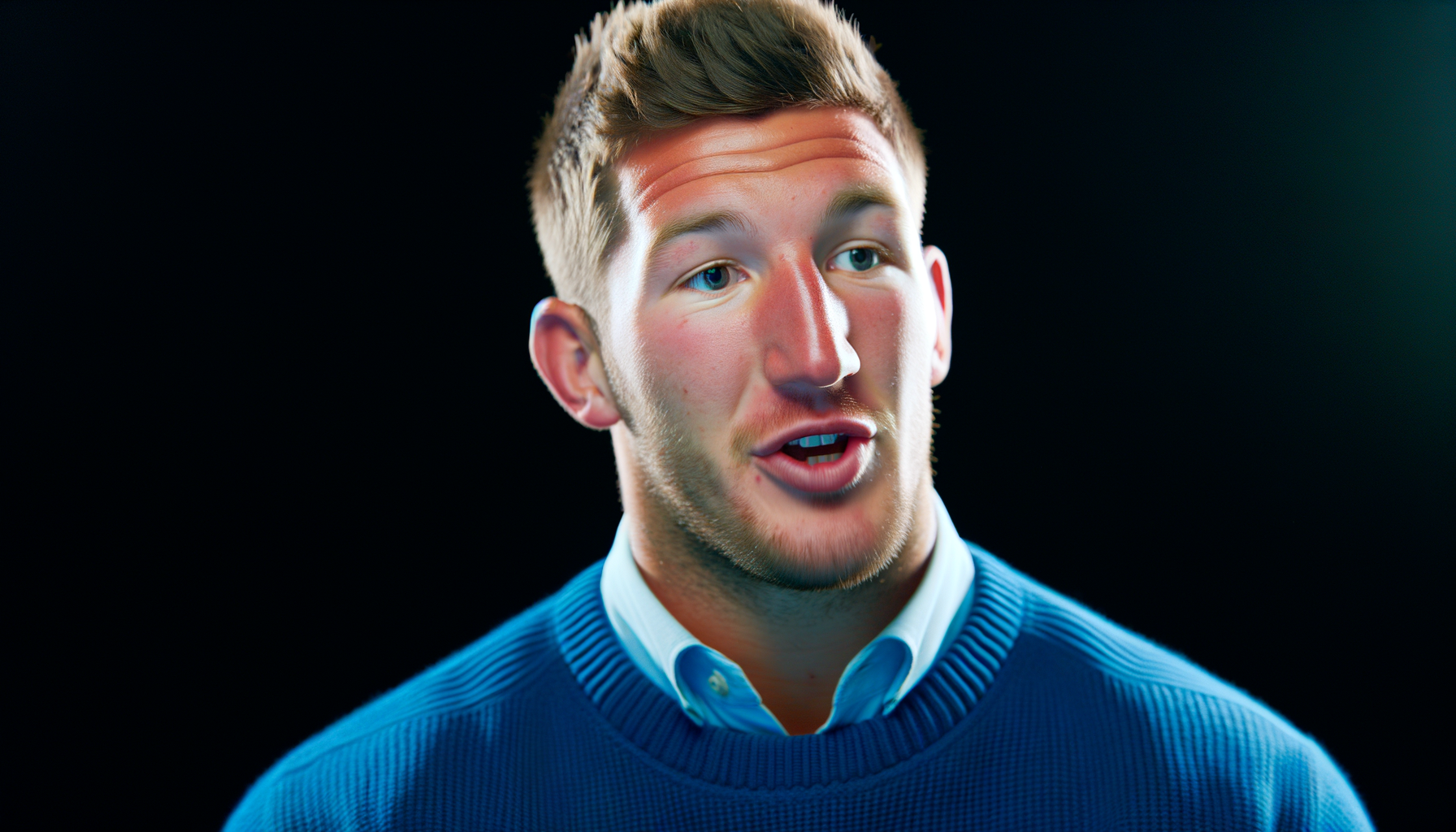Lewis Moody Opens Up About MND Diagnosis
Former England rugby captain Lewis Moody reveals his motor neurone disease diagnosis, shedding light on the condition and its impact on athletes.

By Editorial
Lewis Moody's courageous public revelation
Lewis Moody, the celebrated former England rugby captain and 2003 World Cup winner, has recently shared the deeply personal news of his diagnosis with motor neurone disease (MND). Speaking candidly with BBC Breakfast's Sally Nugent, Moody expressed how challenging it has been to come to terms with this life-altering condition. His openness has sparked an important conversation about MND, a disease that remains misunderstood by many.
Understanding motor neurone disease
Motor neurone disease is a progressive neurological condition that affects the nerves controlling voluntary muscles, leading to muscle weakness, loss of movement, and eventually difficulty with speaking, swallowing, and breathing. It is a devastating diagnosis, with limited treatment options and a generally poor prognosis. The average life expectancy following diagnosis is typically between two and five years, though this varies.
MND’s impact on athletes like Moody is especially poignant given their past physical prowess and high fitness levels. The contrast between their previous strength and the progressive loss of muscle control highlights the disease’s severity.
The impact on athletes and public awareness
Lewis Moody’s announcement brings much-needed attention to MND within the sporting community. Athletes often inspire many, and when a high-profile sports figure reveals such a diagnosis, it humanises the condition and emphasises the urgent need for research and support.
Historically, other sports personalities have also faced MND, such as the legendary Scottish footballer Jimmy Johnstone and former rugby player Doddie Weir, whose advocacy helped increase public awareness and funding for research. Moody’s story continues this legacy, encouraging fans and the public alike to learn more about MND and support those affected.
Challenges faced after diagnosis
Receiving an MND diagnosis is incredibly difficult emotionally and physically. Moody described it as “difficult to receive,” underscoring the shock and grief that accompanies such news. Patients must navigate a rapid decline in physical abilities while managing the psychological toll.
Support systems, including family, friends, and specialist care teams, are vital during this time. Advances in multidisciplinary care have improved quality of life for many, but the need for accelerated research into treatments remains urgent.
Living with MND: coping strategies
Adapting to life with MND involves both medical and practical strategies. Speech therapy, physiotherapy, and assistive technologies can help maintain independence longer. Emotional support through counselling or peer groups also plays a crucial role.
Moody’s public openness may encourage others diagnosed with MND to share their experiences, fostering a community of mutual support. It also highlights the importance of early diagnosis and access to care.
Raising awareness through sport
Sport has long been a platform for raising awareness about health issues. Moody’s revelation exemplifies how athletes can use their visibility to spotlight conditions like MND. This public dialogue can lead to increased funding for research, better patient care, and reduced stigma.
For instance, campaigns inspired by sporting figures have successfully boosted awareness for other diseases, such as dementia and mental health conditions. Moody’s story will likely inspire similar initiatives within rugby and wider sports communities.
Connecting with wider sports stories
For those interested in how sports intertwine with broader cultural and health narratives, England sport highlights key moments and insights offers a compelling overview. Additionally, the world of Formula 1, as seen in Max Verstappen secures first 2025 F1 win at Japanese Grand Prix, demonstrates how athletes’ journeys can inspire millions.
How to support those affected by MND
There are several ways individuals and communities can support those living with MND:
- Donate to research charities: Organisations like the Motor Neurone Disease Association fund vital research.
- Volunteer and offer practical help: Assisting with everyday tasks can greatly improve quality of life.
- Raise awareness: Sharing stories like Moody’s on social media helps educate others.
- Attend fundraising events: Many sports clubs host charity matches and walks.
These actions help build a network of care and hope for patients and families.
Conclusion: a call for empathy and action
Lewis Moody’s brave disclosure of his MND diagnosis is a powerful reminder of the fragility of health, even among elite athletes. It challenges us to deepen our understanding of motor neurone disease and to support ongoing research and patient care.
By following stories like Moody’s and engaging with the wider sports world, including insights from Manchester United’s goalkeeper dilemma and summer transfer insights, sports fans can appreciate the resilience required both on and off the pitch. Moody’s journey is not just a personal battle but a beacon encouraging collective awareness and compassion.
Related topics
Editorial
Sports expert at SportsScoop
Specialist in sports analysis and journalism
Related articles
Want to read more?
Explore our comprehensive collection of sports articles and analysis, or contact us for more information.



